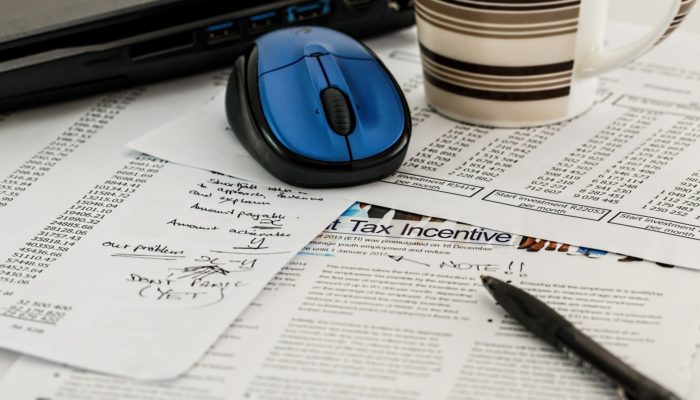Did you just start a home business? Do you need some tips on what is required for your income tax? The following ideas can help you be ready for the next tax season.
Keep Organized and Record Everything
Make sure you have a system for keeping track of expenses and invoices. When tax time rolls around, you want to have everything ready. You might choose to file your paperwork in chronological order or by category.
A spreadsheet is an efficient tool for keeping track of financial information. If you’re not comfortable with the computer, you can use a notebook to track expenses and receipts. Attach the corresponding document to the page where it’s recorded.
Understand Your Deductions
If your business functions exclusively from your home, you’re likely eligible for a home office deduction. The square footage your home office includes is ONLY the space you really use. You cannot consider the area of a whole room if you use just a part of it.
Other possible home business deductions are travel, supplies, and equipment (like computer and printer). You can acquire or update your office furniture and deduct the expense. In general, anything you have to spend to be able to run your business is deductible.
Track Vehicle Expenses
There are two ways to register car expenses. You may record your mileage or track all vehicle cost.
If you choose to track the distance you drive, keep a notebook in your vehicle to write down any business-related travel. Write down your odometer reading at the beginning of the year, as you’ll need to report the total number of miles you drove during the year.
Often, you won’t know until tax time which method will result in the larger deduction. So, you may want to keep track of mileage plus all other vehicle expenses. You then have the option choose which system to use after you calculate which will be more advantageous.
Research Applicable Tax Terms
Do you know what alternative minimum tax means? How about good service tax? Getting familiar with tax terms related to businesses can help you stay one step ahead of tax requirements.
Think about Health Insurance and Retirement
If you’re working only for your own business, you’ll need to pay the employer’s part of Social Security and health insurance. Part or all of these payments may be deductible.
You may choose to contribute to retirement plans (such as Keogh plans and SEP IRAs). These contributions can be deducted on your personal income tax.
Plan for Estimated and Self-Employment Taxes
Self-employed people don’t have the benefit of having taxes automatically deducted from each paycheck. You’ll need to plan well to make sure you have the funds on hand at tax time. You can do this by putting a part of the money into a savings account every time you receive payment.
Estimated taxes are due on the fifteenth of January, April, June, and September. If you end up overestimating your tax liability during the year, you’ll receive a refund after submitting your taxes. You can apply this refund to the next estimated tax payment.
Employ Your Family Members
In many home businesses, it’s common for the family to work together. Did you know you can employ your family members? This can be a great way to teach your kids financial responsibility.
If you can prove your family members are working in the business, you can hire them and deduct their salaries. You may also be able to deduct their insurance premiums.
Consider a Tax Preparer
In general, if you do some research, keep good records, and read instructions carefully, you can prepare your own taxes. However, taxes can still seem overwhelming to some people. If you need a little extra help, you may want to consider talking with a tax accountant or tax lawyer. Good luck next season with our top tips.
